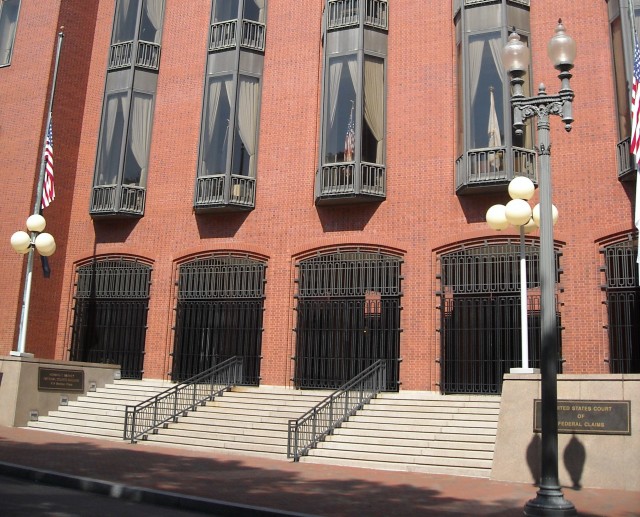
The US Court of Appeals for the Federal Circuit published a unique order this morning, issuing a public reprimand to one of its best-known practitioners, patent lawyer Edward Reines of Weil Gotshal.
The order [PDF] reveals that the full 11-judge court instituted an attorney discipline proceeding against Reines in June, shortly after it became aware of an e-mail exchange that led to the resignation of then-Chief Judge Randall Rader. The order makes public many more details of the story behind the e-mail that led to Rader's resignation, as well as the e-mail itself.
The court publicly reprimands Reines for forwarding the complimentary e-mail to more than 30 current or prospective clients. Within a few days, Reines showed the e-mail to in-house counsel at many of his big-ticket tech clients, including Apple, Cisco, eBay, Facebook, HP, Netapp, Newegg, Samsung, and Yahoo.
The subject line of the e-mail was "Congratulations." It read:
Ed,
On Wednesday, as you know, the judges meet for a strictly social lunch. We usually discuss politics and pay raises. Today, in the midst of the general banter, one of my female colleagues interrupted and addressed herself to me. She said that she was vastly impressed with the advocacy of "my friend, Ed." She said that you had handled two very complex cases, back to back. In one case, you were opposed by Seth Waxman. She said Seth had a whole battery of assistants passing him notes and keeping him on track. You were alone and IMPRESSIVE in every way. In both cases, you knew the record cold and handled every question with confidence and grace. She said that she was really impressed with your performance. Two of my other colleagues immediately echoed her enthusiasm over your performance.
I, of course, pointed out that I had taught you everything you know in our recent class at Berkeley together . . . NOT! I added the little enhancement that you can do the same thing with almost any topic of policy: mastering the facts and law without the slightest hesitation or pause!
In sum, I was really proud to be your friend today! You bring great credit on yourself and all associated with you!
And actually I not only do not mind, but encourage you to let others see this message.
Your friend for life, rrr
Reines did share the e-mail, with "no fewer than 35 existing or prospective clients," noted the judges. Ultimately more than 70 individuals received it, mostly other lawyers. In an e-mail to five top lawyers at Cisco, including company GC Mark Chandler, Reines forwarded the Rader e-mail and wrote this preface:
Team Cisco, as you continue to consider us for your Federal Circuit needs, I thought the below email from Chief Judge Rader might be helpful regarding my arguments yesterday. Notwithstanding his comment, please do not circulate this widely. All The Best, Ed
Special relationship
In arguments over the issue, Reines characterized the e-mail as an "unusually generous compliment from an unnamed jurist... about [respondent’s] skill at oral advocacy."
The appeals judges saw it as more than that. "The email both explicitly describes and implies a special relationship between respondent and then-Chief Judge Rader," wrote the court, in the unsigned per curiam opinion. "The text of the email describes a close friendship between the two."
Forwarding the e-mails spread the word about the implied "special relationship," they wrote, and violated rules of professional conduct. "The comments to existing and potential clients invited respondent’s retention in future matters based on this relationship." Attorney speech which "states or implies an ability to influence improperly a government agency or official" is against rules of professional conduct, the court stated. Such speech is "either misleading (because the attorney has no ability to influence the official) or, if true, solicits business based on an offer to improperly influence the public official."
In addition to the e-mail, the 11-judge court noted "the exchange of items of value between Mr. Reines and then-Chief Judge Rader." Reines gave Rader a concert ticket on one occasion, got him a seating upgrade in a different concert, and arranged for backstage access at both, while Rader paid for accommodations. That issue was forwarded to the California State Bar.
The records related to the initial order, regarding the e-mail, were placed in the public record. Additional records, presumably concerning the matter of the concerts attended together, were forwarded to the California State Bar but remain under seal.
Reines didn't respond to requests for comment on today's order from Ars.
Rader first apologized for the e-mail in May when he stepped down as Chief Judge. The full en banc court instituted the attorney discipline case on June 5. The public docket for the attorney discipline case shows it was instituted on June 5. The following week, Rader announced he would step down.
reader comments
59